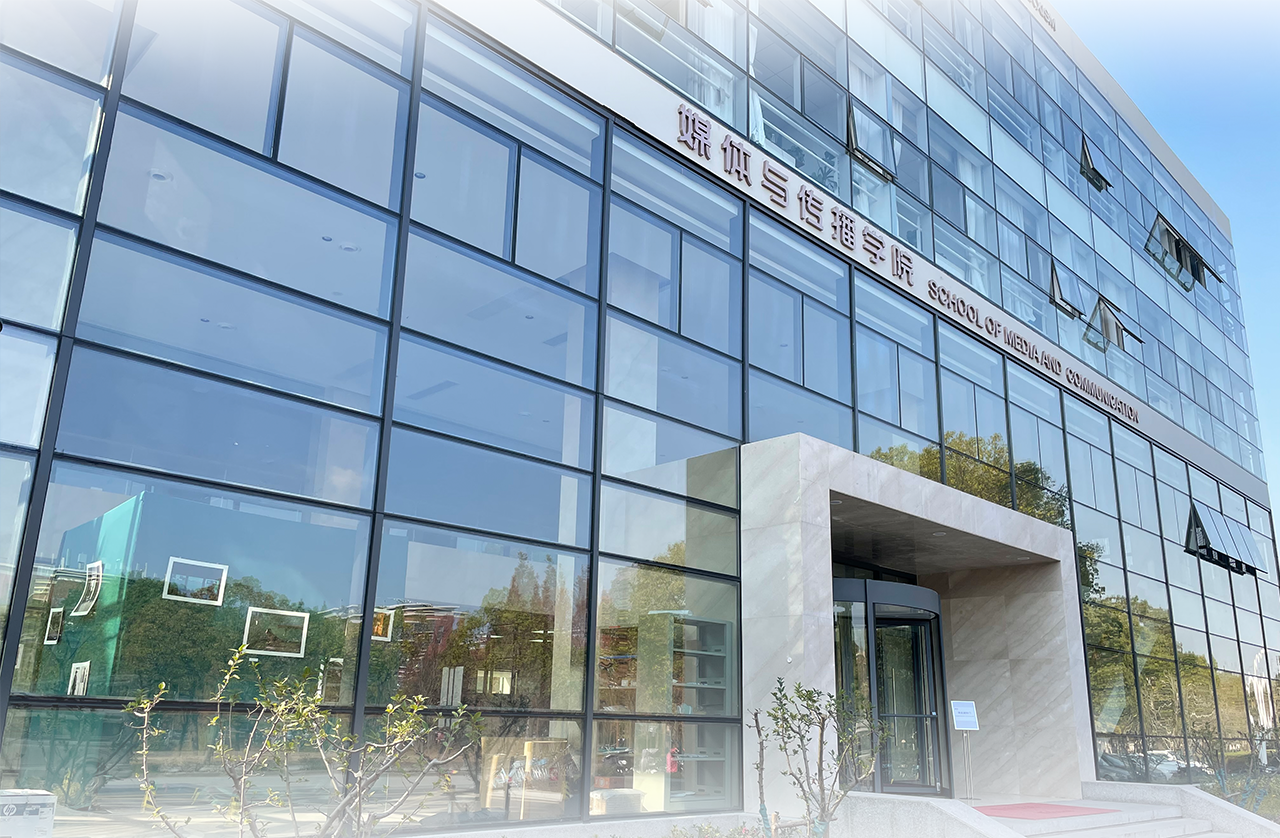Lecture Review | Professor Bertrand Cabedoche from UNESCO Discusses Contemporary World-Communication Issues
On July 22nd, 2023, Professor Bertrand Cabedoche, Chair Professor of Information and Communication Sciences at the Université Grenoble Alpes (UGA), President of the UNESCO Chairs in Communication (Orbicom) global network, and UNESCO Chairholder in International Communication, delivered an academic lecture titled "Contemporary Issues of World Communication" to the students of the Sino-French Joint Intercultural Communication Summer School at the School of Media and Communication, Shanghai Jiao Tong University. The entire lecture was conducted in French and was simultaneously interpreted by Assistant Researcher Tingting Tao from the Department of Journalism and Communication at the School of Media and Communication, and Dr. Zhuoran Ma from the University of Grenoble Alpes.
Professor Bertrand Cabedoche delved into the concept and significance of world communication, analyzing it in-depth while incorporating academic advancements and real- world case studies. He emphasized that "International Communication" is an objective term. The term itself lacks scientific value, and its interpretation varies based on the interests of different social actors involved in actual communication. As a structural concept, "world communication" reflects the diverse events occurring in the contemporary world.
During the lecture, Professor Bertrand Cabedoche shared insights into recent shifts in research focus in Africa and Asia, the similarities and differences in research paradigms within various international communication schools, and the relationship between French information communication science and cultural studies. He conducted an in-depth analysis of the current environment and challenges faced by world communication, emphasizing the need for decentralized reflection.
In the concluding part of the lecture, Professor Bertrand Cabedoche shared his personal experiences in research. He emphasized the significance of one's personal trajectory in research, as individual experiences bring about hypotheses, serendipity, and shared subjectivities in the research process. With the world system undergoing several reconstructions, the notions of center and periphery have become plural, signifying the existence of multiple centers and peripheries in the world. As "researchers," individuals need to accept contributions beyond national boundaries and undertake their own historical paths while engaging in perpetual questioning and mutual exchange.
During the discussion session, the attendees actively raised questions and engaged in in-depth discussions with Professor Bertrand Cabedoche. The professor patiently addressed each query, allowing the participants to gain a deeper comprehension of world communication issues. Additionally, some students with a French background directly conversed and exchanged ideas with the professor in French, further enriching the interaction.
As an authority in the field of global communication, Professor Bertrand Cabedoche brought a feast of ideas to the attendees with his profound knowledge and extensive research experience. The lecture was enriched with abundant content, skillfully combining theory and practice, stimulating the participants to generate new reflections on world communication and broadening their perspectives in learning and research. Conducted entirely in French, the lecture smoothly facilitated mutual understanding through the simultaneous interpretation provided by Assistant Researcher Tingting Tao and Dr.Zhuoran Ma. Together, they accomplished an academic lecture that transcended geographical and linguistic barriers, facilitating intercultural exchange between China and France.
Guest Speaker: Bertrand Cabedoche
Chair Professor of information and communication sciences at the Université Grenoble Alpes(UGA), France. Bertrand Cabedoche served as the President of the UNESCO Chairs in Communication (Orbicom) global network , and UNESCO chairholder in international communication. Additionally, he is a member of the executive board of the European Communication Research and Education Association (ECREA). Previously, he served as the Dean of the School of Journalism at the Université Grenoble Alpes.
Students Feedback
During the Q&A session, I seized the opportunity to raise my questions to the professor regarding the content covered in chapters 7 and 8 of the lecture. I believed that cultural studies pose a challenge to elitist consciousness and have undergone several ethical shifts, which bear similarities to the development of communication and the transformation of scientific information paradigms. The professor answered my question diligently and provided illustrative examples, which were conveyed to me through the translation by the teachers. I realized how precious it is to have such a direct opportunity to exchange ideas with international scholars, and I felt elated.
-Chen Peng, Communication University of China
During the Q&A session, two points from Professor Bertrand Cabedoche's response impressed me the most. Firstly, he emphasized the importance of adhering to the initial writing commitment when conducting academic research. He stressed the significance of having a consistent, relevant, rigorous, and original title for academic papers. He highlighted the priority of empirical research and the need to explore whether theories hold true in novel research contexts while striving to make innovative contributions based on previous studies. Secondly, the professor discussed the role of technology in the discipline, cautioning against falling into the trap of "technological determinism," where technology is seen as the sole solution to all social problems. He also warned against the pitfall of "social determinism," urging researchers to examine the interactions between actors, technologies, and the resulting impacts, while considering various factors such as political, economic, and cultural aspects.These two points mentioned by Professor Bertrand Cabedoche are valuable lessons for my future studies and paper writing. They serve as inspiration and guidance in ensuring thequality and relevance of my academic work.
-Pei Wenjing ,Fu Dan University
The proposition of "world communication" introduced by Professor Bertrand represents the essence of his years of contemplation on communication theory. It stands as a challenge to the dominant paradigms influenced by English and American scholarship. While thinkers like Bourdieu and Wallerstein have indicated the world's gradual envelopment and incorporation within a system called "the world" from different perspectives, Professor Bertrand's concept of "global communication" reveals the incompleteness of this system. It derives from a decentralized description of the "global," which opens up communication theory to a more diverse range of experiences and allows it to evolve within the interconnected network of the"global."
-Xiao Jingjia, Fu Dan University


